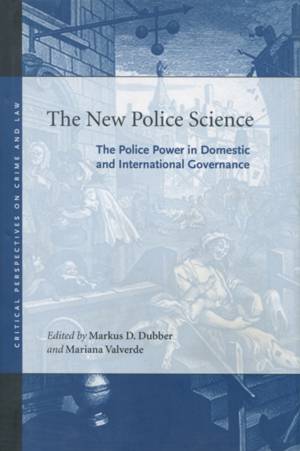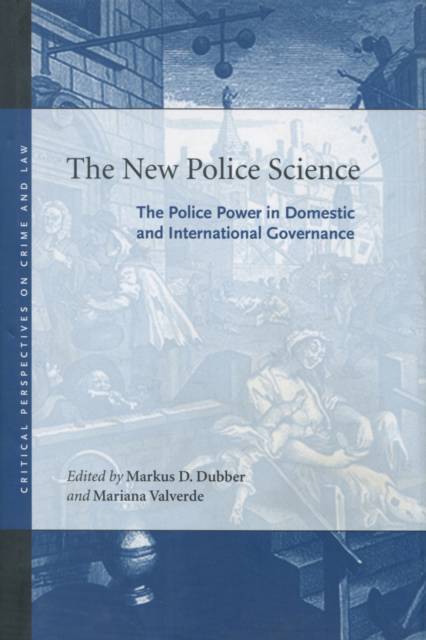
- Retrait gratuit dans votre magasin Club
- 7.000.000 titres dans notre catalogue
- Payer en toute sécurité
- Toujours un magasin près de chez vous
- Retrait gratuit dans votre magasin Club
- 7.000.0000 titres dans notre catalogue
- Payer en toute sécurité
- Toujours un magasin près de chez vous
The New Police Science
The Police Power in Domestic and International Governance
Description
This timely volume provides a critical analysis of the most comprehensive and least comprehended of state powers, the power to police, broadly understood as the power to maximize public welfare-or, more colorfully, its "peace, order, and good government."
Featuring contributions by leading scholars from several countries working in a variety of fields, including law, criminology, political science, history, sociology, and social theory, The New Police Science examines the power to police as a basic technology of modern government that appears in a vast array of sites of governance, including not only the state, but also the household, the factory, the military, and-most recently-the global realm of war, police actions, and peacekeeping. This volume resurrects and radically re-envisions the once thriving study of police science as a comprehensive critical inquiry into the nature of governance.
Spécifications
Parties prenantes
- Editeur:
Contenu
- Nombre de pages :
- 320
- Langue:
- Anglais
- Collection :
Caractéristiques
- EAN:
- 9780804753920
- Date de parution :
- 11-10-06
- Format:
- Livre relié
- Format numérique:
- Ongenaaid / garenloos gebonden
- Dimensions :
- 162 mm x 235 mm
- Poids :
- 557 g

Les avis
Nous publions uniquement les avis qui respectent les conditions requises. Consultez nos conditions pour les avis.





